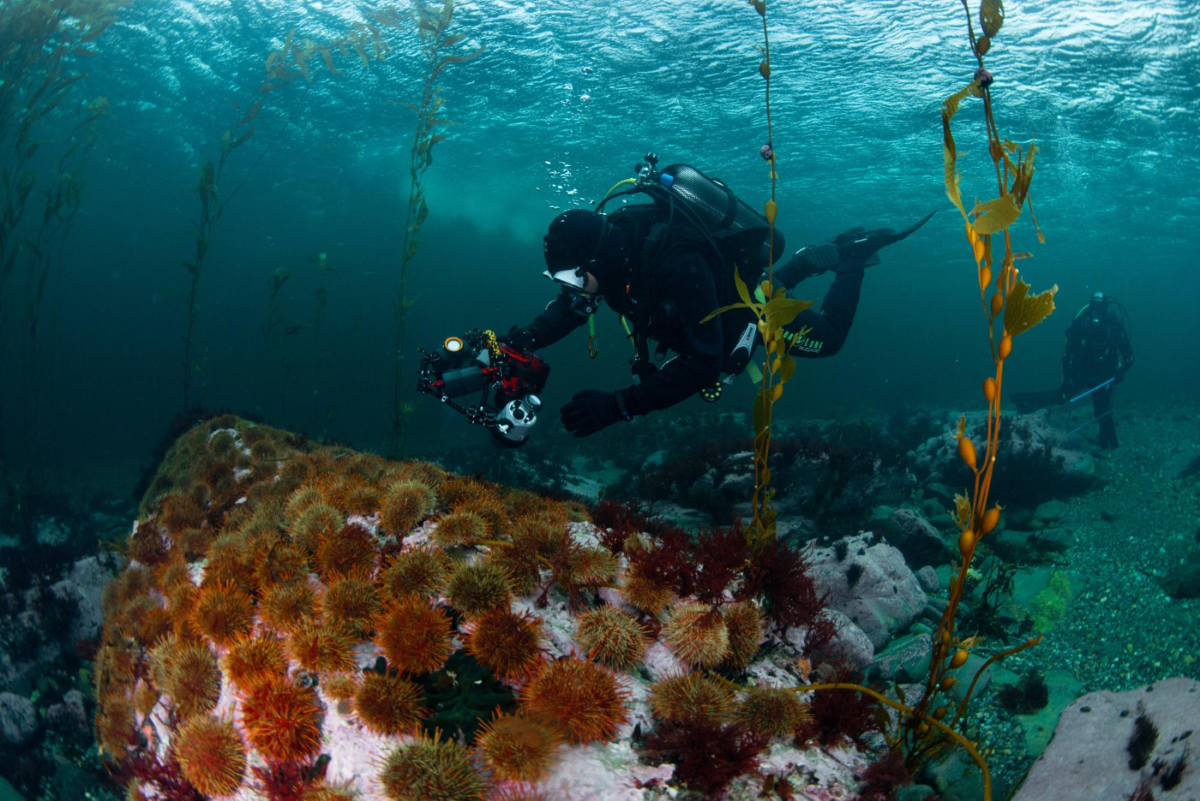Rewilding Chile: Expanding conservation to protect Patagonia’s unique marine ecosystems

J. Tomás Yakasovic. © Pablo Zavala / Rewilding Chile
04.01.2024
For over three decades, Rewilding Chile, a grantee partner of the Ecological Restoration Fund, has championed terrestrial conservation along the Route of Parks of Chilean Patagonia. However, during the last three years, the organisation has also been working to extend protection to the sea, while underscoring the importance of preserving interconnected ecosystems for ensuring ecological continuity and stability.
Despite 42% of the Chilean sea falling under a protection category, the coastal ecosystems along the Route of Parks of Patagonia, encompassing coastlines, channels, fjords, and bays, are vastly under-protected at less than 1%. Rewilding Chile’s marine conservation program aims to establish a network of marine parks, the highest level of conservation for marine protected areas under Chilean legislation.
Chilean Patagonia serves as a unique convergence point for the Pacific, Atlantic, and Antarctic oceans’ marine currents. The collision of these massive water masses creates diverse environmental conditions, ecological niches, and natural processes, sustaining a rich biodiversity intimately connected with both marine and terrestrial life.
Since 2020, Rewilding Chile has conducted 13 expeditions led by Conservation Director Ingrid Espinoza, collaborating with local marine biologists, photographers, and experts. These expeditions focus on monitoring the biodiversity of the Patagonian Sea, identifying ‘hotspots’, documenting ‘benthic communities’ (species and habitats) on the seabed, mapping threats, and monitoring key habitats. The results from these expeditions play a crucial role in justifying the creation of marine parks.
The organisation recently conducted an expedition in the Strait of Magellan, which supports a range of marine life, from krill, squat lobster, fish, squid, and stingrays to large mammals such as sea lions, dolphins, and whales. The expedition was documenting the biodiversity of Bahía Inútil, a previously difficult-to-access inlet that has become a refuge for various species, including a new colony of king penguins.
Rewilding Chile’s Ingrid Espinoza noted that; “One of the indicators of its ecological value was the establishment of the king penguin colony there. The fact they decided to stay meant this area offered them food. Although penguins nest on land, they feed in the sea, so this new colony was an excellent sign.”
These expeditions also serve to document the key threats to these marine environments. One finding detailed the detrimental impact of salmon farming, including seabed contamination, water eutrophication, and the escape of large quantities of fish. Mussel and mollusk farming waste is another threat they identified. Similarly deep-sea trawling, a main contributor to the decline of fish populations by destroying structuring species including corals, was found as another significant threat in the area.
Rewilding Chile’s commitment to documenting and understanding these threats provides further technical arguments for the establishment of marine parks. By showcasing the ecological value of areas like Bahía Inútil and highlighting the intricate marine ecosystems, the organisation aims to secure support for expanding protection to the seas of Chilean Patagonia.